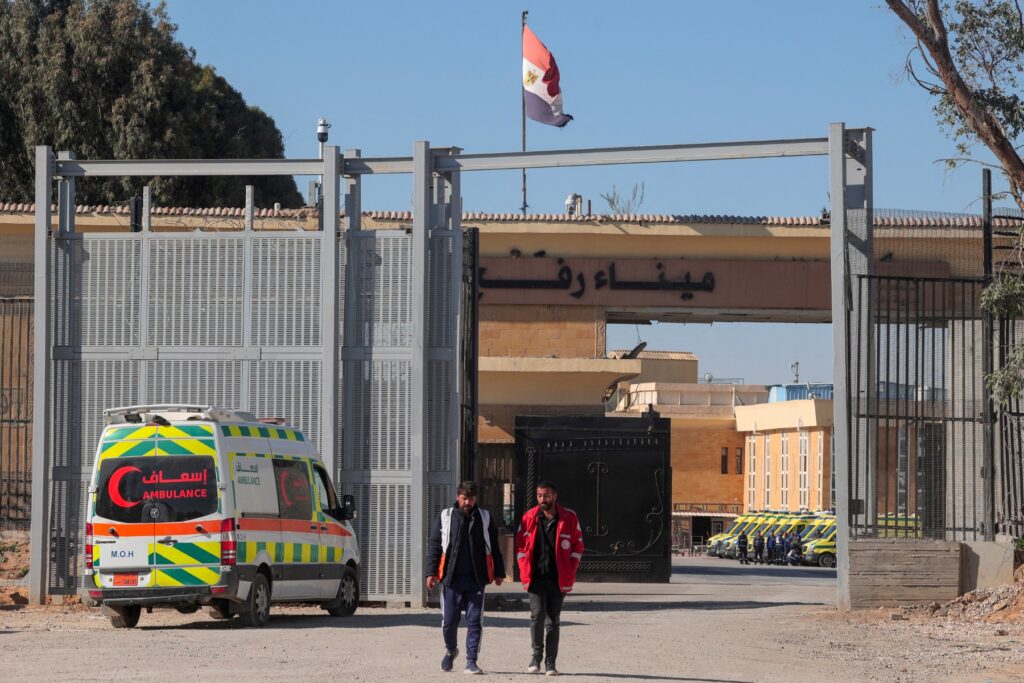Egyptian authorities have detained and deported several Turkish citizens along with dozens of other foreign nationals who traveled to Cairo to take part in the Global March to Gaza, a mass initiative aiming to pressure Israel over its siege of the Palestinian enclave, according to reporting by independent Egyptian outlet Mada Masr.
According to Mada Masr, participants from Turkey were removed from their hotel in Cairo after being seen with Palestinian flags, while others from Algeria and Morocco were denied entry or deported shortly after landing.
Algerian lawyer Fatiha Rouibi told Mada Masr that 40 Algerians were detained on Wednesday morning at Cairo Airport and held for 24 hours before being allowed to leave the country. A Moroccan activist speaking anonymously said more than 10 people in their group were turned back upon arrival.
The mass mobilization, which has been coordinated for weeks, aims to bring thousands of international participants to the Egypt-Gaza border to demand an end to the war on Gaza, increased humanitarian access and government sanctions against Israel. Organizers had planned to walk from the city of Arish in North Sinai to the Rafah crossing and camp there from June 15 to 19, emphasizing that they do not intend to cross into the strip without permission.
Although organizers said many marchers had arrived in Egypt in recent days, the government had remained silent on whether the march would be permitted. That changed Wednesday night, when the foreign ministry issued a statement welcoming international delegations but warning that anyone traveling to North Sinai must first obtain prior authorization.
A government official, speaking to Mada Masr on condition of anonymity, said none of the participants would be allowed to reach Rafah, citing reasons of national security and sovereignty. The official also confirmed that Egyptian authorities had communicated with several governments in advance to discourage citizens from attempting to join the march.
At a press conference held earlier on Wednesday, march organizers expressed their willingness to coordinate with Egyptian officials and reaffirmed that no Egyptian participants would join the march. They also stressed that no actions would be taken in violation of Egyptian law and asked the government to explain any decisions to block the initiative.
In a separate but related effort, a convoy dubbed the Sumud Convoy — composed of over 1,500 people from Tunisia, Algeria and Mauritania — is traveling by land across North Africa to Egypt’s western border with Libya. They hope to cross into Egypt through the Salloum crossing and proceed to Rafah. As of Wednesday evening, they had not received a response from Egyptian authorities regarding entry.
The Egyptian government has long restricted access to North Sinai, citing security concerns, and has allowed only a limited number of state-approved convoys to reach the Gaza border since Israel’s military operation began in October 2023.
Israel’s control of the Palestinian side of the Rafah crossing, seized in 2024, has effectively blocked most humanitarian access to Gaza. Despite Cairo’s repeated claims that the crossing remains open on its end, aid deliveries have remained severely limited. The World Food Program warned earlier this week that looting and attacks on aid convoys have left Gaza’s population without sufficient assistance, even after Israel recently permitted limited truckloads into the strip.
More than 130 Palestinians have been killed near Israeli-run aid distribution sites, which are now overseen by the Gaza Humanitarian Foundation — a company reportedly linked to American and Israeli intelligence agencies.
The Egyptian authorities’ deportation of Global March to Gaza participants comes just days after Israeli forces intercepted the Madleen, a vessel carrying 12 international volunteers who attempted to sail toward Gaza to break the blockade. All passengers were detained and later deported.
Critics in Egypt have described the international march as an attempt to embarrass Cairo or stir unrest at the border. Egyptian lawmakers and state-aligned commentators have echoed such concerns in recent days, warning that large-scale mobilizations near Rafah could be exploited to further plans to forcibly displace Palestinians into Egypt — a scenario both the Egyptian government and many of the march organizers have publicly rejected.

